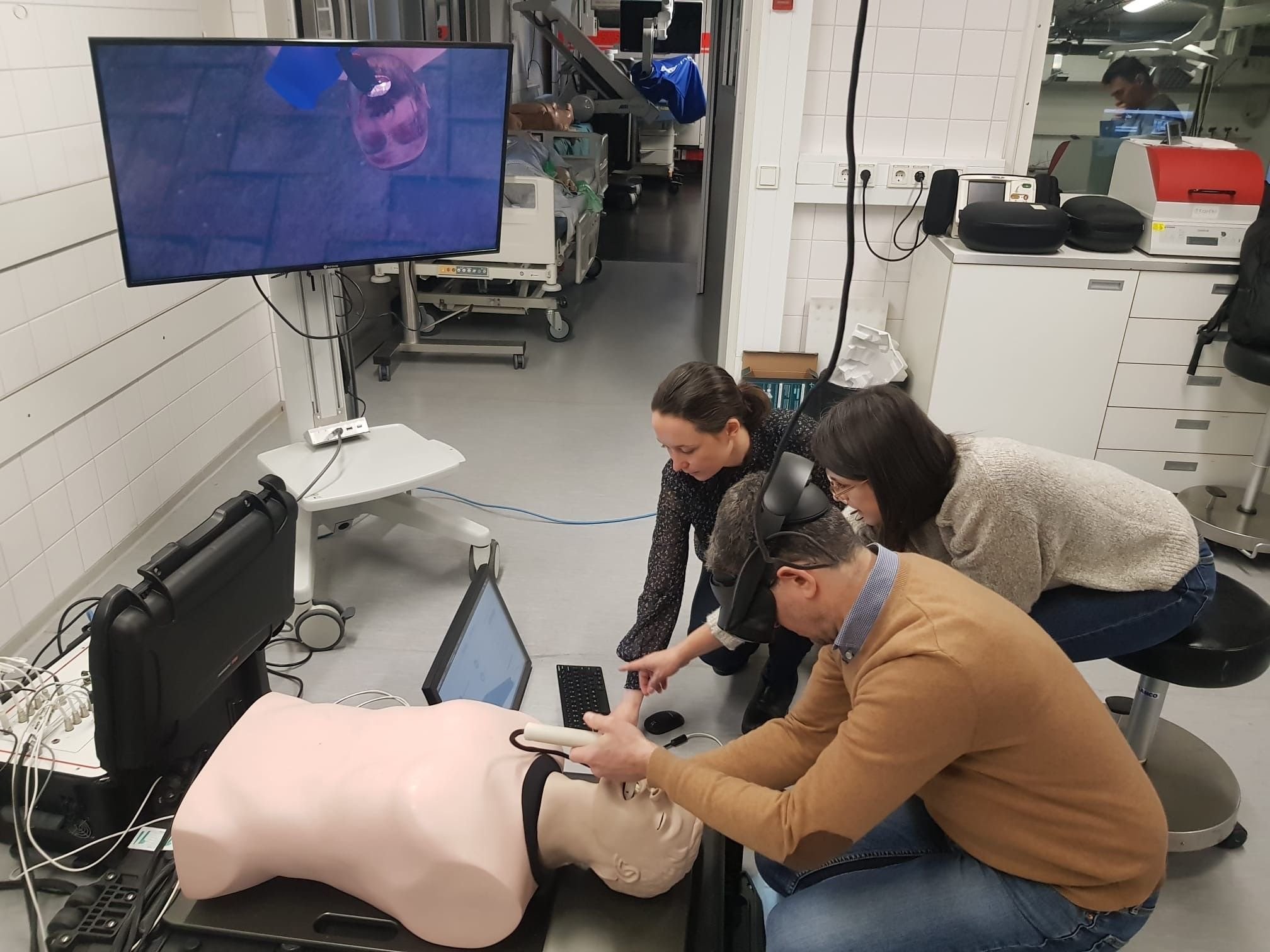
Research Projects
Our approach is grounded in interdisciplinary research that combines psychology, human-machine interaction, and information technology to understand what makes immersive experiences truly impactful.
Explore our research projects and collaborations below to see why our methods are at the forefront of XR analytics.
To understand where users experience low-quality presence and immersion and why, we tested our method’s ability to detect these moments in a controlled mini-game. In the game, participants tossed colorful balls into baskets until none were left.
By deliberately introducing different types of errors, we validated how accurately our method could identify and distinguish between them.
PRESENCE: Virtual and Augmented Reality (2025)
Detecting Breaks in Presence
This project, conducted in collaboration with the LMU University Hospital in Munich, investigates how XR technologies can help train emergency simulations. Using XR and real-life scenarios, the study compares established presence measurement methods such as heart rate, skin conductance, and self-report surveys with the novel movement-based approach developed by Response Reality.
The goal is to understand presence during critical, high-stress situations. Findings will support the development of more effective and immersive training systems for emergency response and medical education.
Institut für Notfallmedizin und Medizinmanagement
Project Lead: Selina Kim
Presence in Emergency Simulations
AI and XR based Virtual Conflict Resolution Training
This collaboration combines artificial intelligence and immersive VR technology to develop interactive training environments for constructive conflict resolution. The goal is to create effective, hands-on learning experiences that build confidence and competence in handling challenging situations.
Designing and developing the VR modules, included conducting a nationwide needs assessment among youth work professionals. The insights from this survey ensure that the training reflects real-world challenges and provides practical tools for everyday work with children and young people. In the long term, the project aims to strengthen a network for conflict transformation and empower multipliers in youth work to resolve conflicts more effectively.
CRISP - Crisis Simulation for Peace







